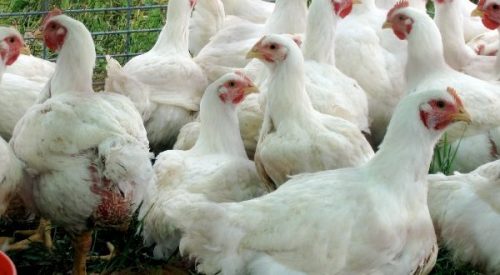
Chicken suppliers in Malaysia are rushing to send as many chickens as they can across the Causeway before the export ban kicks in tomorrow.
Eight exporters, farmers and suppliers in Malaysia who spoke to The Straits Times on condition of anonymity said the sudden announcement by the Malaysian government to ban the export of chickens came as a shock.
They added that they have since been rushing to send as much of their supply as possible to Singapore, with some farms working round the clock to decide for additional lorries and deliveries.
The rush comes amid a surge in demand for fresh chickens in Singapore, with supermarket shelves wiped clean.
The Singapore Food Agency (SFA) told ST it is working closely with the industry to manage the chicken supply situation in Singapore. “The industry has activated its supply chains to increase the import of chickens,” it said.
The Animal Veterinary Service has extended operating hours for inspection of incoming live poultry at Tuas Checkpoint from May 25 to May 31, the agency added.
On Monday (23 May), Malaysian Prime Minister Datuk Seri Ismail Sabri Yaakob announced that the country will halt the export of up to 3.6 million chickens a month until domestic prices and production stabilise.
The Malaysian authorities are investigating the possibility that cartels are controlling the price and supply of poultry, with a report due in June, reports said.
But those in the industry who spoke to ST said a lack of manpower, rising costs, disease and bad weather are behind the shortage.
An exporter told ST that while the bigger players may try to increase their prices from time to time, they are forced to bring prices back down because consumers will simply switch to other sellers offering cheaper options.
“Even if several farms decide to raise prices together, there are many others who will keep selling at the lower prices, and then everyone will buy the cheaper ones instead.After maybe a week, those who increase their prices soon realise they are losing business and quickly bring their prices back down,” he said
He added that because chickens are a fast-moving commodity with numerous players in the market, any attempt to manipulate the market would ultimately fail.
While chickens sold in Malaysia are supposed to be capped at RM8.90 (S$2.80) per kg, many are being sold at around RM11.90 per kg.
The exporter said this was due to added costs from rising petrol and feed prices, and that it was not a mark-up meant for further profit.
Last year, Singapore imported about 34 percent, or close to 73,000 tonnes, of its chicken supply from Malaysia, according to the SFA. The other major sources of poultry last year were Brazil (48 percent) and the United States (8 percent), but these were frozen meat.
More than 3.7 million chickens were slaughtered in Singapore in March this year, according to data from SFA.
Singapore’s live chickens can be imported from only 115 farms in West Malaysia approved by the SFA. Of these, 91 are located in Johor.
























